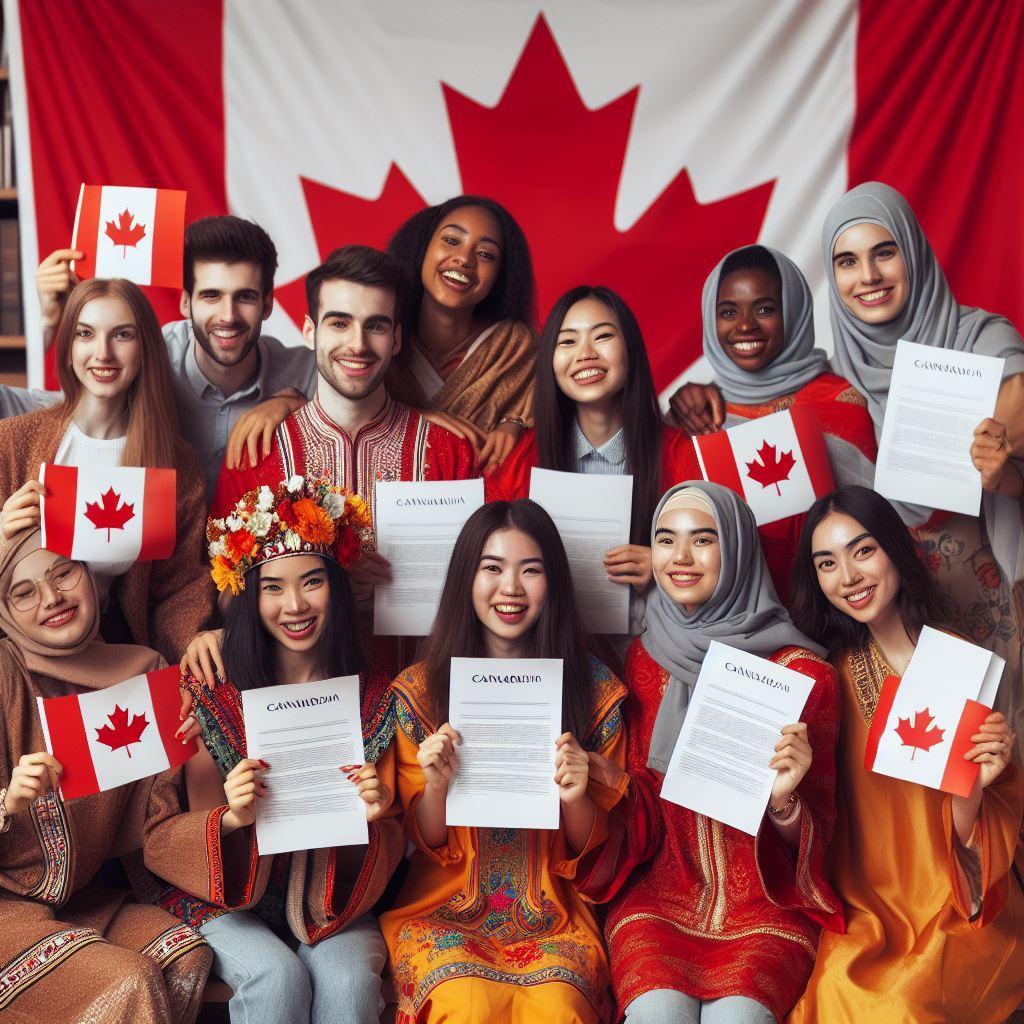Canada has emerged as a top destination for international students seeking world-class education, cutting-edge research opportunities, and a high quality of life. With its welcoming multicultural environment, excellent academic institutions, and generous scholarship programs, Canada offers a compelling option for students looking to pursue a Master’s degree abroad.
In this comprehensive guide, we’ll explore the various pathways to securing a Full Masters Scholarships in Canada, including university-specific scholarships, government-funded programs, and external scholarship providers.
Why Pursue a Master’s Degree in Canada?
Canada is renowned for its exceptional higher education system, with universities consistently ranking among the best in the world. Here are some compelling reasons to consider pursuing your Master’s degree in Canada:
- Academic Excellence: Canadian universities are known for their rigorous academic standards, innovative research, and expert faculty. Pursuing a Master’s degree in Canada ensures that you receive a high-quality education that is globally recognized and respected.
- Research Opportunities: Canada is a leader in research and development across various fields, from technology and engineering to healthcare and social sciences. As a Master’s student, you’ll have the opportunity to work alongside renowned researchers and contribute to groundbreaking projects.
- Multicultural Environment: Canada is celebrated for its diversity and inclusivity, welcoming students from all over the world. Studying in Canada exposes you to a rich multicultural experience, allowing you to network with peers from diverse backgrounds and broaden your global perspective.
- Post-Graduation Opportunities: Canada offers attractive post-graduation work permit options for international students. Upon completing your Master’s degree, you may be eligible for a work permit lasting up to three years, providing valuable opportunities to gain work experience and potentially pursue permanent residency.
- Quality of Life: Canada consistently ranks among the best countries in the world for quality of life, with safe cities, a strong healthcare system, and stunning natural beauty. As a student, you’ll enjoy a high standard of living and access to a wide range of cultural and recreational activities.
Types of Full Master’s Scholarships in Canada
There are several types of full Master’s scholarships available in Canada, each with its own eligibility criteria, application process, and benefits. Let’s explore some of the most notable options:
1. University-Specific Scholarships
Many Canadian universities offer their own scholarships for international students pursuing Master’s degrees. These scholarships are typically awarded based on academic merit, research potential, and leadership skills. Some examples of university-specific scholarships include:
- University of British Columbia Graduate Global Leadership Fellowships: This scholarship provides a tuition waiver and a stipend of $18,200 per year for up to two years for outstanding international Master’s students. Learn more about the UBC Graduate Global Leadership Fellowships.
- University of Toronto Lester B. Pearson International Scholarships: The Lester B. Pearson International Scholarships cover tuition, books, incidental fees, and full residence support for four years. These scholarships are awarded to exceptional international students who demonstrate leadership potential, academic achievement, and creativity. Find out more about the Lester B. Pearson International Scholarships.
- McGill University McCall MacBain Scholarships: The McCall MacBain Scholarships provide full funding for Master’s and professional degrees at McGill University, including tuition, fees, and a living stipend. These scholarships are awarded based on academic excellence, leadership potential, and community engagement. Discover more about the McCall MacBain Scholarships.
2. Government-Funded Scholarships
The Canadian government offers several scholarship programs for international students, aimed at attracting top talent and promoting research collaboration. Some notable government-funded scholarships include:
- Vanier Canada Graduate Scholarships: The Vanier Canada Graduate Scholarships are among the most prestigious scholarships in Canada, supporting exceptional doctoral students. While not specifically for Master’s students, those planning to pursue a Ph.D. after their Master’s can apply. The scholarship provides $50,000 per year for up to three years. Learn more about the Vanier Canada Graduate Scholarships.
- Canadian Commonwealth Scholarship Program: The Canadian Commonwealth Scholarship Program offers scholarships to students from Commonwealth countries to pursue Master’s and Ph.D. programs in Canada. The scholarship covers tuition, travel, and living expenses. Find out more about the Canadian Commonwealth Scholarship Program.
- Ontario Graduate Scholarship (OGS): The OGS is a merit-based scholarship available to graduate students studying in Ontario. It provides funding of up to $15,000 per year for a maximum of two years. The scholarship is open to both domestic and international students. Learn more about the Ontario Graduate Scholarship.
3. External Scholarship Providers
In addition to university-specific and government-funded scholarships, there are several external organizations that offer full Master’s scholarships for international students in Canada. Some examples include:
- Trudeau Foundation Scholarships: The Pierre Elliott Trudeau Foundation offers scholarships to outstanding doctoral students in the social sciences and humanities, including those studying the social implications of technology. The scholarship provides $40,000 per year for up to three years, along with a $20,000 annual travel and research allowance. Discover more about the Trudeau Foundation Scholarships.
- Mastercard Foundation Scholarships: The Mastercard Foundation offers scholarships to students from Sub-Saharan Africa to pursue undergraduate and graduate studies at selected universities in Canada. The scholarship covers tuition, living expenses, travel, and other costs. Find out more about the Mastercard Foundation Scholarships.
- Rotary Peace Fellowships: The Rotary Peace Fellowships support international students pursuing a Master’s degree in fields related to peace and conflict resolution. The fellowship covers tuition, fees, room and board, travel, and other expenses. Learn more about the Rotary Peace Fellowships.
How to Apply for a Full Master’s Scholarship in Canada
Applying for a full Master’s scholarship in Canada involves several steps and requires careful planning. Here’s a general overview of the application process:
- Research Scholarships: Start by researching the various scholarships available for international students in Canada. Look for scholarships that align with your academic background, research interests, and personal qualifications.
- Check Eligibility Requirements: Carefully review the eligibility criteria for each scholarship, ensuring that you meet the necessary requirements, such as academic standing, language proficiency, and country of origin.
- Prepare Application Materials: Gather and prepare the required application materials, which may include transcripts, research proposals, letters of recommendation, personal statements, and proof of language proficiency (e.g., TOEFL or IELTS scores).
- Submit Applications: Follow the specific application instructions for each scholarship, including deadlines, submission methods, and any additional requirements. Make sure to submit your applications well in advance of the deadlines to allow for processing time.
- Await Results: After submitting your applications, wait for the scholarship committees to review your materials and make their decisions. This process can take several weeks or months, depending on the scholarship.
- Accept Offers: If you are awarded a scholarship, carefully review the terms and conditions of the offer and follow the necessary steps to accept the funding.
- Apply for a Study Permit: Once you have secured a scholarship and have been admitted to a Canadian university, begin the process of applying for a Canadian study permit, which is required for international students studying in Canada.
Tips for Securing a Full Master’s Scholarship in Canada
Securing a full Master’s scholarship in Canada is highly competitive, but there are several strategies you can employ to increase your chances of success:
- Excel Academically: Scholarship committees place a strong emphasis on academic achievement. Strive to maintain a high GPA, particularly in courses related to your intended field of study.
- Gain Research Experience: Many scholarships, especially those at the graduate level, prioritize candidates with relevant research experience. Seek opportunities to work on research projects, publish papers, and present at conferences.
- Demonstrate Leadership and Community Involvement: Scholarship providers often look for candidates who have demonstrated leadership skills and a commitment to their communities. Participate in extracurricular activities, volunteer work, and leadership roles to strengthen your application.
- Craft Compelling Application Materials: Take the time to develop strong application materials, including a well-written research proposal, a compelling personal statement, and persuasive letters of recommendation. Tailor your materials to the specific scholarship and highlight your unique qualifications and achievements.
- Start Early: Begin your scholarship search and application process well in advance of the deadlines. This will give you ample time to gather materials, request letters of recommendation, and refine your applications.
- Apply Widely: Don’t limit yourself to just a few scholarships. Apply to a wide range of opportunities, including university-specific, government-funded, and external scholarships. The more applications you submit, the higher your chances of securing funding.
- Seek Guidance: Utilize the resources available to you, such as university international student offices, scholarship advisors, and mentors in your field. They can provide valuable guidance and support throughout the application process.
Conclusion
Securing a full Master’s scholarship in Canada is a competitive but rewarding process. By researching the various scholarship opportunities, understanding the application requirements, and dedicating yourself to crafting compelling applications, you can increase your chances of success. Remember to start early, apply widely, and seek guidance from available resources throughout the process.
Pursuing a Master’s degree in Canada with a full scholarship can be a life-changing experience, providing access to world-class education, cutting-edge research opportunities, and a vibrant multicultural community. With the right preparation and determination, you can make your dream of studying in Canada a reality and unlock a world of possibilities for your academic and professional future.
Can I apply for a full Master’s scholarship in Canada before being accepted to a university?
In most cases, you will need to apply and be accepted to a Canadian university before applying for scholarships. However, some scholarships may have earlier application deadlines than university admission deadlines, so it’s essential to research the specific requirements of each scholarship.
How competitive are full Master’s scholarships in Canada?
Full Master’s scholarships in Canada are highly competitive, as they attract top international students from around the world. The level of competition varies depending on the scholarship, but generally, successful applicants have exceptional academic records, strong research experience, and compelling personal achievements.
Can I hold multiple scholarships at the same time?
The ability to hold multiple scholarships simultaneously depends on the specific rules and regulations of each scholarship provider. Some scholarships may allow you to hold multiple awards, while others may require you to choose between them. It’s crucial to carefully review the terms and conditions of each scholarship and consult with the scholarship providers if you have any questions.
Are there any language requirements for full Master’s scholarships in Canada?
Most scholarships and Canadian universities require applicants to demonstrate proficiency in English or French, depending on the language of instruction at the institution. Common language proficiency tests include the TOEFL, IELTS, or DELF/DALF. The specific language requirements and minimum scores vary by scholarship and university, so it’s essential to check the requirements carefully.
How long does the scholarship application process take?
The scholarship application process can take several months, depending on the scholarship and the volume of applications received. It’s common for scholarship committees to review applications and make decisions over several rounds, which can extend the process. To ensure you meet all deadlines, start your scholarship search and application process well in advance of your intended study start date.
What happens if I don’t secure a full Master’s scholarship?
If you don’t receive a full Master’s scholarship, there are still several options available to help fund your studies in Canada. These include:Applying for partial scholarships or grants from universities, government bodies, or external organizations
Seeking research or teaching assistantships within your department
Applying for student loans or education loans from banks or financial institutions
Considering part-time work opportunities, such as on-campus jobs or internships
It’s also worth exploring alternative funding sources from your home country, such as government scholarships or private sponsorships.
How can I get a full scholarship for a Master’s in Canada?
To increase your chances of securing a full scholarship for a Master’s degree in Canada, focus on maintaining a high GPA, gaining relevant research experience, and demonstrating leadership skills through extracurricular activities. Research and apply to a wide range of scholarships, including university-specific, government-funded, and external scholarships. Tailor your applications to highlight your unique qualifications and achievements, and submit them well before the deadlines.
Can I get a 100% scholarship to study in Canada?
Yes, it is possible to secure a 100% scholarship to study in Canada. However, these scholarships are highly competitive and typically awarded to exceptional students with outstanding academic achievements, research experience, and leadership potential. Examples of 100% scholarships include the Vanier Canada Graduate Scholarships, the Pierre Elliott Trudeau Foundation Scholarship, and the Ontario Trillium Scholarship.
Is it possible to get a fully funded Master’s in Canada?
Yes, it is possible to get a fully funded Master’s degree in Canada through various scholarship programs. These may include university-specific scholarships, government-funded scholarships, and external scholarships from private organizations or foundations. To secure a fully funded Master’s, you’ll need to research and apply to multiple scholarships, ensuring that you meet the eligibility criteria and application requirements for each.
Can I study my Master’s in Canada for free?
While it is possible to study your Master’s in Canada for free through full scholarships, it is a highly competitive process. Most international students will need to cover at least some portion of their tuition fees and living expenses. However, by securing partial scholarships, grants, and assistantships, you can significantly reduce your overall costs of studying in Canada.
How much GPA is required for scholarships in Canada?
The minimum GPA required for scholarships in Canada varies by scholarship and institution. However, most competitive scholarships typically require a minimum GPA of 3.0 or higher on a 4.0 scale. Some prestigious scholarships may require an even higher GPA, such as 3.5 or above. It’s essential to check the specific requirements of each scholarship you plan to apply for.
How can an international student get a full scholarship in Canada?
International students can secure full scholarships in Canada by researching and applying to a wide range of scholarship programs, including those offered by universities, the Canadian government, and external organizations. To be competitive, international students should strive to maintain a high GPA, gain relevant research experience, demonstrate leadership skills, and craft compelling application materials that highlight their unique qualifications and achievements.
Is Canada expensive for Master’s degrees?
The cost of pursuing a Master’s degree in Canada varies depending on the institution, program, and location. Generally, international students can expect to pay higher tuition fees than domestic students. On average, international students may pay between CAD $15,000 to $35,000 per year for a Master’s degree. However, this cost can be offset by securing scholarships, grants, and assistantships.
Is Canada cheap for Master’s degrees?
Compared to other popular study abroad destinations, such as the United States or the United Kingdom, Canada can be a more affordable option for international students pursuing a Master’s degree. However, the cost of living and tuition fees can still be substantial, especially for those coming from countries with lower costs of living. It’s essential to research the specific costs associated with your chosen program and institution and to explore funding options, such as scholarships and grants.
Which Master’s degree is most valuable in Canada?
The value of a Master’s degree in Canada depends on various factors, such as industry demand, job prospects, and earning potential. Some of the most valuable Master’s degrees in Canada include:Master of Business Administration (MBA)
Master of Computer Science
Master of Engineering
Master of Data Science
Master of Healthcare Administration
Master of Nursing
Master of Social Work
However, the most valuable Master’s degree for you will depend on your personal interests, career goals, and the specific job market you plan to enter after graduation.















